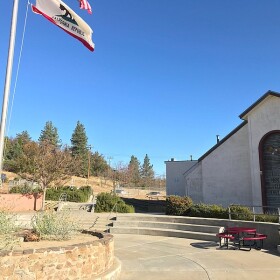Opponents of a ballot measure calling for changes in the way the county approves large developments in the backcountry, rallied in front of the County Administration building Friday.
Save Our San Diego Countryside voters put a measure on the March ballot that will allow residents to decide whether to approve major backcountry developments that don’t meet the county’s General Plan guidelines.
Developers, business leaders and people concerned about high housing costs do not see the ballot measure as a proper solution for the county.
“If there is a county-wide vote, voters are not required to consider that local input. I think it's fundamentally a bad idea to have voters from very far away from something to be able to vote on it,” said Tanya Castaneda, an opponent of the Yes on SOS measure. “It's not going to be near them. It's not going to affect them. It doesn’t make sense to put that out for all these people to vote on (developments) when they have no idea of the immediate surroundings.”
Right now San Diego county supervisors can grant exceptions to the General Plan’s development guidelines, something they have done repeatedly for large housing projects.
Critics of the measure say making land use development decisions at the ballot box is a fundamentally bad approach to planning.
Backers of Yes on SOS say the current system of letting developers plan is just as bad.
“California, for the past four or five days, is burning down,” said Susan Baldwin, of the group Yes on SOS. “And the kinds of projects that are threatened by the fires are these kinds of projects. So why when we have plenty of land to do infill development in the cities and plenty of land to do housing in the unincorporated area. Why would we put more people in danger by building more sprawl development.”
Baldwin also points out that these large isolated developments in the backcountry carry high environmental costs. People will have to drive further to get back and forth to work and the projects have almost no chance of being connected to mass transit systems.
That, Baldwin said, is too high a cost to let three supervisors make long-term development decisions.







